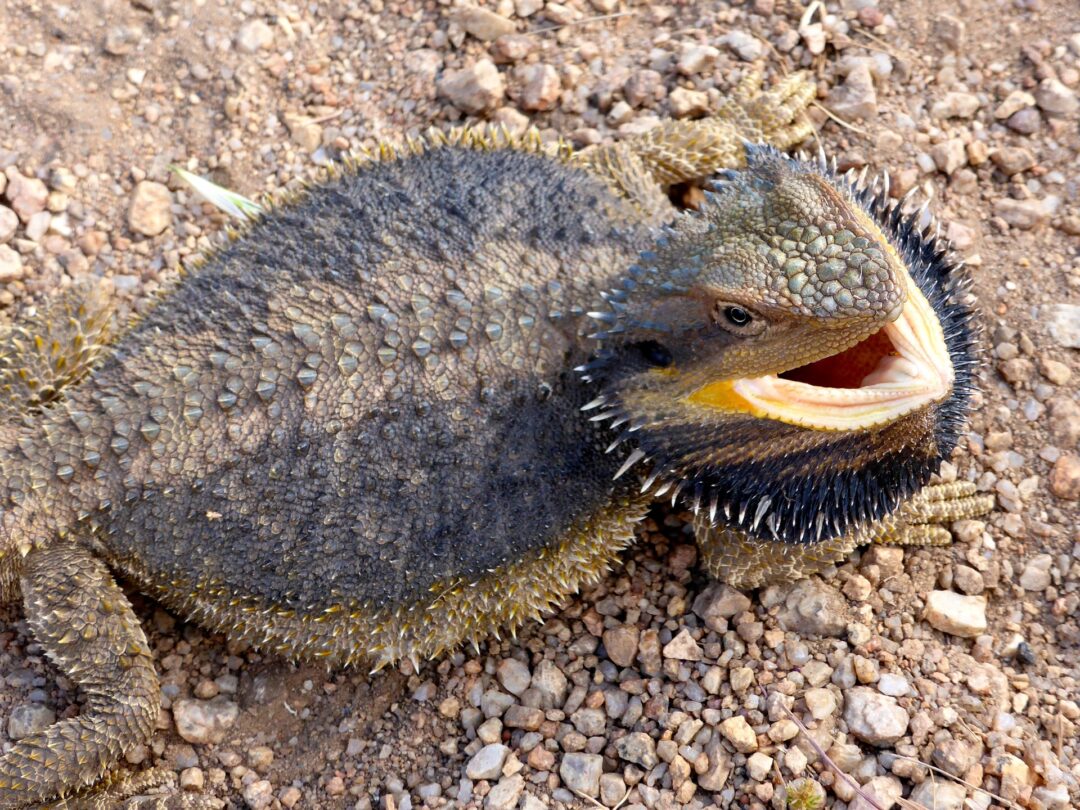Bearded dragons are fascinating creatures that have captured the hearts of reptile enthusiasts around the world.
One common question that potential bearded dragon owners often ask is, “Do bearded dragons have teeth?”
In this article, we will explore the dental anatomy of bearded dragons, discuss their teeth structure and function, and address some frequently asked questions related to their oral health.
Do Bearded Dragons Have Teeth?
Yes, bearded dragons do have teeth. However, their dental structure differs from that of mammals like humans or dogs.
Bearded dragons possess unique teeth that serve specific purposes in their eating and feeding habits.
Teeth Structure in Bearded Dragons
The teeth of bearded dragons are small, cone-shaped structures located along the upper and lower jaws.
These teeth are not deeply rooted like human teeth but are attached to the inner lining of the jawbone.
The dental arrangement in bearded dragons consists of several rows of teeth on both the upper and lower jaws.
The function of Bearded Dragon Teeth
The teeth of bearded dragons play a crucial role in their feeding habits and survival in the wild. Here are the primary functions of their teeth:
![]() Grasping Prey: Bearded dragons use their teeth to catch and hold onto their prey. The sharp teeth help them grab insects, small rodents, or vegetation.
Grasping Prey: Bearded dragons use their teeth to catch and hold onto their prey. The sharp teeth help them grab insects, small rodents, or vegetation.
![]() Breaking Down Food: Bearded dragons have a unique way of eating. They do not chew their food but rather use their teeth to break it down into smaller, manageable pieces before swallowing.
Breaking Down Food: Bearded dragons have a unique way of eating. They do not chew their food but rather use their teeth to break it down into smaller, manageable pieces before swallowing.
![]() Defense Mechanism: While bearded dragons are generally docile creatures, they may resort to defensive behaviors when threatened. In such situations, their teeth can act as a deterrent and discourage potential predators.
Defense Mechanism: While bearded dragons are generally docile creatures, they may resort to defensive behaviors when threatened. In such situations, their teeth can act as a deterrent and discourage potential predators.
FAQs about Bearded Dragon Teeth
Do bearded dragons lose their teeth?
Yes, bearded dragons do lose their teeth. Similar to other reptiles, they undergo a process called tooth replacement. As bearded dragons grow, their teeth will wear down or fall out, and new ones will emerge to replace them.
Can bearded dragons bite?
While bearded dragons are generally docile, they may bite if they feel threatened or scared. However, their bites are not usually severe and rarely break the skin.
How can I care for my bearded dragon’s teeth?
Maintaining good oral health is essential for your bearded dragon’s overall well-being. You can help keep their teeth healthy by providing a balanced diet, offering appropriate calcium supplements, and ensuring proper hygiene by regularly cleaning their food and water dishes.
Can bearded dragons suffer from dental problems?
Yes, bearded dragons can experience dental issues such as tooth decay or gum disease. Poor dental hygiene, improper diet, or inadequate calcium intake can contribute to these problems.
Regular veterinary check-ups and a healthy diet can help prevent dental issues in bearded dragons.
Are there any signs of dental problems in bearded dragons?
Signs of dental problems in bearded dragons may include difficulty eating, drooling, swollen gums, or a decrease in appetite. If you notice any of these signs, seeking veterinary care for proper diagnosis and treatment is essential.
Conclusion
Bearded dragons do have teeth, which serve essential functions in their feeding habits and defense mechanisms. Understanding the dental anatomy of bearded dragons and providing appropriate care can contribute to their overall well-being.
By maintaining good oral health and addressing any dental issues promptly, you can ensure a happy and healthy life for your bearded dragon companion.
Related Articles:
6 Best UVB Light For Bearded Dragon 40 Gallon Tank
How Far Can Bearded Dragons See? A Detailed Guide
6 Best UVB Light For Bearded Dragon 40 Gallon Tank
Why is My Bearded Dragon Running Around Like Crazy?
Can Bearded Dragons Eat Rapini?

